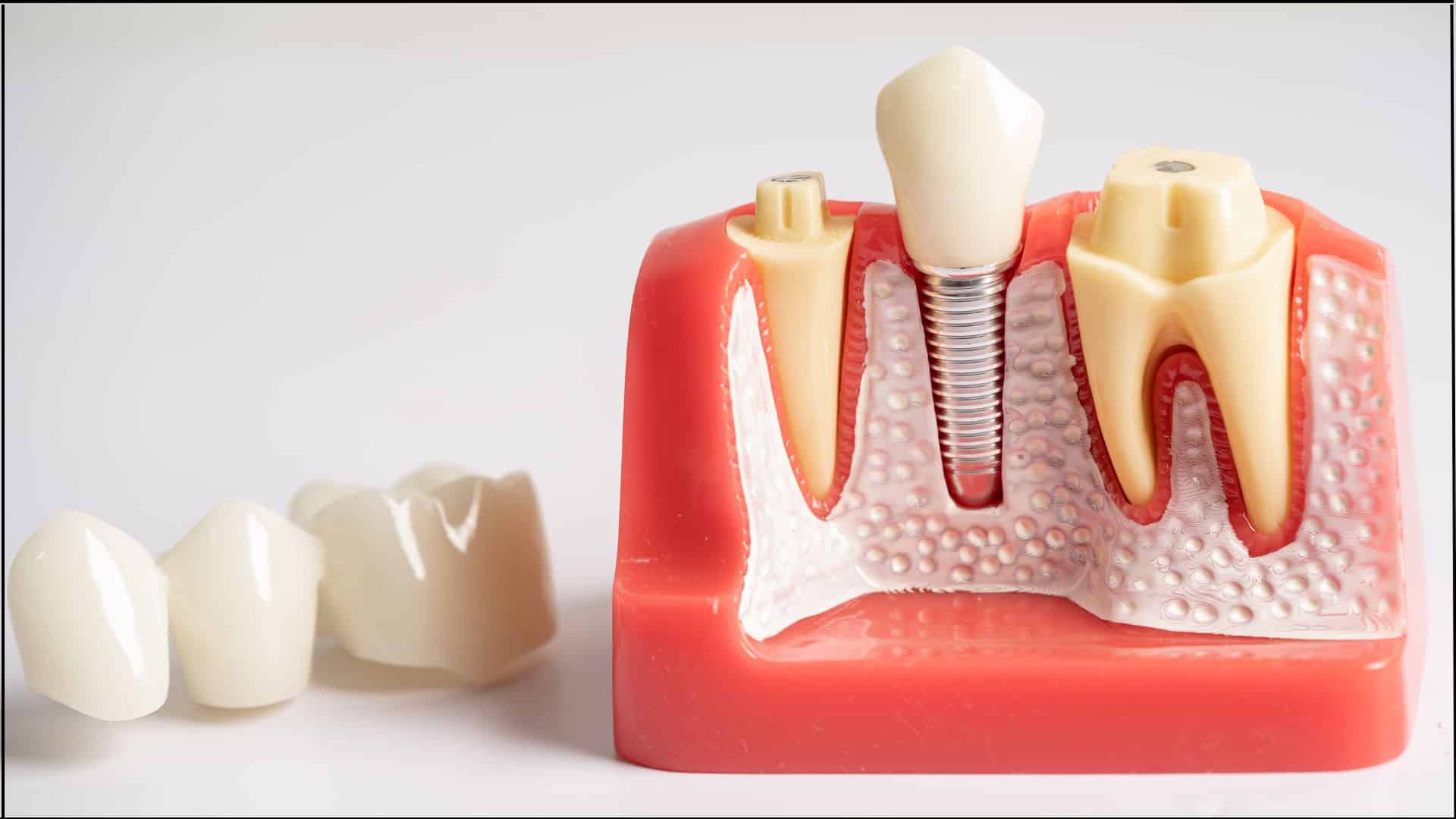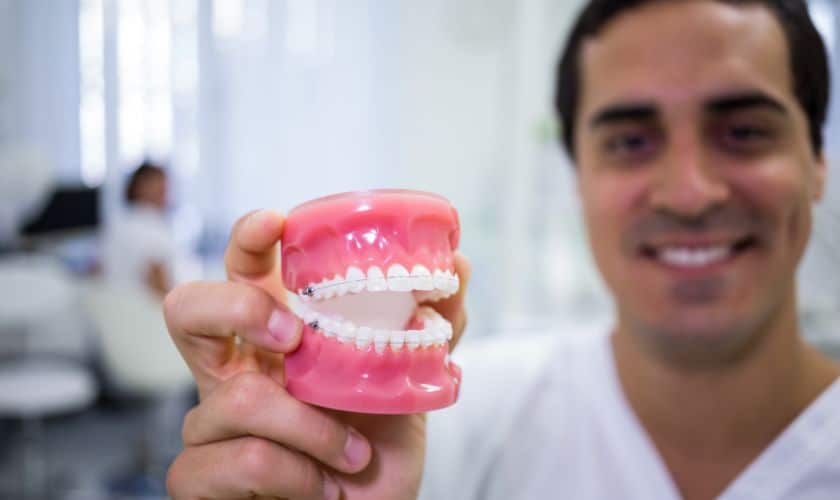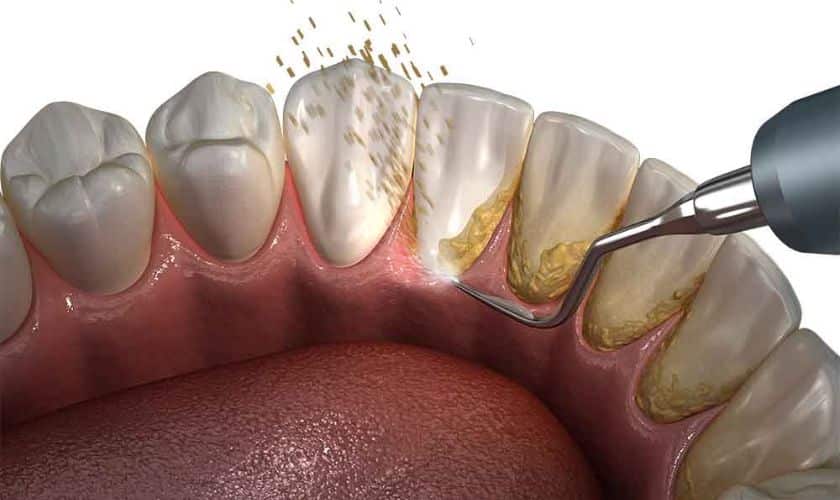
July 5, 2023
If you’ve ever experienced tooth decay or damage, you know how important it is to restore your teeth and maintain a healthy smile. Modern dentistry does not function without dental fillings, providing a solution for repairing and strengthening teeth affected by cavities or fractures. So grab your toothbrushes as we guide you through the A’s and B’s of the Oral world!
What Are Dental Fillings?
Dental fillings are a common and effective treatment for restoring teeth damaged by decay or fractures. Essentially, they involve removing the affected portion of the tooth and filling it with a durable material to restore its shape, function, and strength.
These fillings serve two primary purposes: to prevent further decay or damage in the affected tooth and improve its overall appearance. By sealing off any openings or cracks caused by cavities or trauma, dental fillings create a protective barrier against bacteria and food particles that could lead to more serious issues.
Various types of dental fillings are available today, each with its unique set of advantages. The most commonly used materials include amalgam (a mixture of metals), composite resin (tooth-colored material), porcelain, gold alloy, and glass ionomer. Your dentist will recommend the best option based on factors such as the location of the cavity, cost considerations, aesthetics preferences, and oral health needs.
The process of getting a dental filling is typically straightforward. After numbing the area around the affected tooth with local anesthesia if necessary, your dentist will remove any decayed or damaged portions using specialized tools. Once cleaned out thoroughly, they will carefully place layers of filling material into the prepared space until it reaches an appropriate height.
With advancements in dental technology over recent years, many modern fillings can closely mimic natural teeth in color and texture – making them virtually undetectable! This aesthetic aspect is especially important for visible areas like front teeth, where appearances matter greatly.
Dental fillings offer an excellent solution for restoring functionality and aesthetics to damaged teeth. By promptly addressing cavities through this procedure, you can preserve your smile’s beauty while preventing further complications. Be sure to consult your dentist about which type of filling would best suit your needs!
What Types Of Dental Fillings Are There?
Regarding dental fillings, several types are available to suit individual needs and preferences. The filling recommended by your dentist will depend on factors such as the location and size of the cavity, cost considerations, and personal preference.
One common type of dental filling is amalgam fillings. These silver-colored fillings have been used for decades and are known for their durability. They are made from a mixture of metals, including silver, tin, copper, and mercury. Amalgam fillings can withstand the strong forces exerted during chewing but may not be suitable for highly visible areas due to their color.
Composite resin fillings are another popular choice. Made from a tooth-colored material composed of glass particles mixed with plastic resin, these fillings blend seamlessly with natural teeth. Composite resin fillings offer excellent aesthetics while providing adequate strength for smaller cavities.
For those seeking an alternative to metal-based options, ceramic or porcelain fillings can be considered. These materials closely resemble natural teeth in terms of appearance and transparency. Ceramic or porcelain fillings are often more expensive than other types but provide superior aesthetic results.
In recent years, gold has also gained popularity as a filling material among some individuals who prioritize longevity over esthetics. Gold is highly durable and biocompatible with oral tissues but may not be suitable for front teeth due to its yellow color.
Each filling type has advantages and disadvantages based on factors like cost-effectiveness, durability requirements, esthetic concerns, and personal health circumstances.
Many patients find composite resin or ceramic/porcelain as preferable alternatives considering their ability to mimic the look and feel of natural teeth while offering sufficient strength.
What Are The Benefits Of Dental Fillings?
Dental fillings are crucial in maintaining oral health and preventing further damage to teeth. These simple yet effective restorative procedures offer several benefits that make them essential to dental care.
First and foremost, dental fillings help restore the structural integrity of a tooth affected by decay or trauma. By filling in the cavities or damaged areas, fillings provide support and prevent further deterioration, and this helps to preserve the tooth’s natural structure and functionality, allowing for proper chewing and speaking.
Another benefit of dental fillings is aesthetics. Tooth-colored composite resin fillings are popular because they blend seamlessly with natural teeth, making them virtually undetectable. This means you can maintain a beautiful smile while keeping your oral health in check. Furthermore, dental fillings help to prevent infection and discomfort by sealing off any openings or cracks in the tooth surface. When left untreated, these openings can become breeding grounds for bacteria, leading to infections like abscesses or gum disease. Dental fillings act as barriers against harmful bacteria infiltration by filling these spaces.
Moreover, getting timely dental fillings can save you from more extensive treatments. Decayed teeth may require root canal therapy or even extraction if left unchecked. You can avoid more invasive procedures by addressing cavities early on with simple fillings.
In conclusion (not concluding), dental fillings offer numerous benefits for maintaining oral health and preserving natural teeth structure. From restoring function to enhancing aesthetics and preventing infection – their merits cannot be overstated! So if you suspect any cavities or damage in your teeth, don’t delay seeking treatment; consult your dentist about the best options for getting those necessary dental fillings!
How Long Do Dental Fillings Last?
This is a common question that many people have when considering getting a filling. The lifespan of a dental filling can vary depending on several factors, including the filling material used and how well you take care of your oral health.
On average, dental fillings can last anywhere from 5 to 15 years. However, some fillings can last even longer with proper care. Amalgam fillings, made from a mixture of metals, including silver and mercury, are durable and often last for decades.
Conversely, Composite resin fillings may be less long-lasting but offer aesthetic benefits as they match the color of your natural teeth. These tooth-colored fillings typically have a lifespan of around 7 to 10 years.
It’s important to note that regular check-ups with your dentist are crucial for maintaining the longevity of your dental fillings. Your dentist will examine your fillings during these visits and determine if any repairs or replacements are necessary.
It’s crucial to maintain appropriate oral hygiene practices, such as brushing twice a day with fluoride toothpaste and flossing frequently, to ensure the durability of your dental fillings. To avoid causing the filling undue wear or injury, refrain from chewing tough foods or utilizing your teeth.
While there is no definitive answer to how long dental fillings will last since individual circumstances vary greatly, taking proper care of them through regular check-ups and good oral hygiene practices can help extend their lifespan significantly.
How To Take Care Of Your Dental Fillings
Taking care of your dental fillings ensures longevity and good oral health. Here are some essential tips on how to properly care for your dental fillings:
- Maintain good oral hygiene: Brush your teeth at least twice a day and floss daily, paying extra attention to the areas around the filling.
- Avoid hard or sticky foods: Chewing on hard objects like ice cubes or biting into sticky candies can put unnecessary stress on your fillings and may cause them to crack or dislodge.
- Be mindful of teeth grinding: If you have a habit of grinding or clenching your teeth, consider wearing a nightguard to protect your natural teeth and dental fillings from excessive force.
- Visit your dentist regularly: Regular check-ups allow dentists to monitor the condition of your fillings and identify any potential issues early on.
- Limit acidic beverages: Acidic drinks like citrus juices, sodas, and sports drinks can erode tooth enamel over time, compromising the integrity of dental fillings.
- Quit smoking: Smoking stains teeth and increases the risk of gum disease, which could affect the lifespan of dental restorations, including fillings.
By following these simple guidelines, you can help ensure that your dental fillings remain intact and functional for years to come! Remember, prevention is always better than cure when maintaining optimal oral health.
The Bottom Line
Dental fillings play a crucial role in maintaining our oral health and preserving the integrity of our teeth. Dental fillings can effectively restore your teeth to their natural functionality and appearance, whether you have cavities or minor tooth damage.
By opting for dental fillings, you are taking proactive steps toward preventing further decay or damage to your teeth. With various fillings available, including amalgam, composite resin, porcelain, and gold options, you can choose the one that best suits your needs and preferences.
Remember to prioritize regular dental check-ups to ensure early detection of any issues requiring filling treatment. Additionally, practicing good oral hygiene habits, such as brushing twice daily with fluoride toothpaste and flossing regularly, will help maintain the longevity of your dental fillings.
Taking care of your oral health should be a priority for everyone. By understanding the importance of dental fillings and following proper maintenance techniques, you can enjoy healthy teeth for years. So don’t wait until it’s too late – schedule an appointment with your dentist today!
Remember: Your smile is worth protecting!
Recent Posts

Top Benefits of Using a Sedation Dentist in the Portland Area

Missing Teeth? How Dental Implants Can Restore Your Smile

Oral Cancer and Dental Professionals: The Frontline of Defense

Fresh Breath Quest: Knowing When to Seek Dentist Help for Bad Breath

